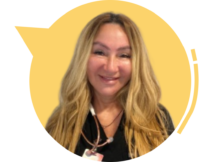 Seeking Professional Help
Seeking Professional Help
1. Talk to a doctor about Medication-Assisted Treatment (MAT).
- MAT can help reduce cravings and withdrawal symptoms using medications like methadone or buprenorphine, so a doctor can determine if this approach is right for you.
2. Consider therapy to address emotional and mental health struggles.
- Addiction often stems from underlying issues like trauma, anxiety, or depression, so therapy helps you process emotions and develop healthier coping mechanisms.
3. Join a recovery group like Narcotics Anonymous (NA).
- Support groups provide encouragement from people who understand your struggles, so they also hold you accountable and help prevent isolation.
4. Explore inpatient or outpatient rehab options.
- Rehab programs offer structured support tailored to your needs, whether residential treatment or outpatient care, so they provide medical supervision, counseling, and recovery tools.
5. Build a treatment plan that fits your lifestyle and needs.
- Every recovery journey is unique, so your treatment should be personalized, and work with professionals to find the best combination of medical care, therapy, and support.
Seeking Professional Help
1. Talk to a doctor about Medication-Assisted Treatment (MAT).
- MAT can help reduce cravings and withdrawal symptoms using medications like methadone or buprenorphine, so a doctor can determine if this approach is right for you.
2. Consider therapy to address emotional and mental health struggles.
- Addiction often stems from underlying issues like trauma, anxiety, or depression, so therapy helps you process emotions and develop healthier coping mechanisms.
3. Join a recovery group like Narcotics Anonymous (NA).
- Support groups provide encouragement from people who understand your struggles, so they also hold you accountable and help prevent isolation.
4. Explore inpatient or outpatient rehab options.
- Rehab programs offer structured support tailored to your needs, whether residential treatment or outpatient care, so they provide medical supervision, counseling, and recovery tools.
5. Build a treatment plan that fits your lifestyle and needs.
- Every recovery journey is unique, so your treatment should be personalized, and work with professionals to find the best combination of medical care, therapy, and support.

 Seeking Professional Help
Seeking Professional Help